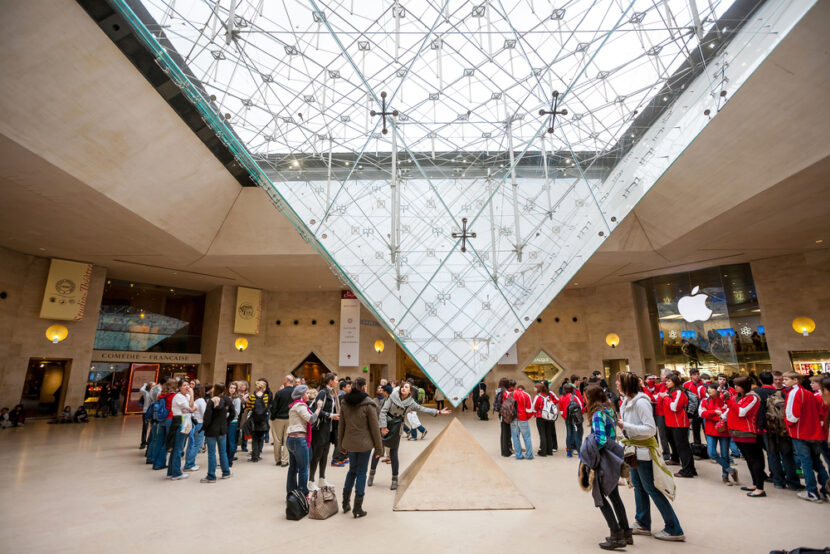PARIS – Gray skies over a half-empty Eiffel Tower.
Since last week’s terrorist attacks that left 17 victims and three gunmen dead, the swarms of sightseers have thinned below Paris’ most visited monument, baring the dull concrete of the giant plaza.
Just over a week after the attacks, only a handful of tourists were taking photos, and one or two having portraits sketched by resident artists. The long lines that normally snake around the Eiffel Tower’s gargantuan pillars were a fraction of the length.
“It’s been so calm since the attacks. There’s hardly anyone at all,” sandwich seller Kamel Bougrab said across the street.
Tourism officials couldn’t give figures of the number of sightseers in the immediate aftermath of the attacks, but visits by The Associated Press to major sites and interviews with vendors indicated an initial drop in visitors.
British student Eric Dale, on a group trip with his college, said one of his classmates was kept back by her parents, who were fearful for her safety.
“My parents were nervous, but in the end they left the final decision up to me,” he said.
An Eiffel Tower spokeswoman insisted that the attraction had recorded no drop in visits so far, compared to the relatively slow month of January 2014. But no official statistics have yet been compiled, and the situation could still change, she said on condition of anonymity because of company policy.
Among the tourists that were still braving visits, many took comfort in the extra security presence. With 10,500 troops deployed across the country, including 6,000 in the Paris region alone, the security operation put in motion after the attacks is the most extensive on French soil in recent history.
Lucinda Bay, 22, from Australia said she came to the French capital with her sister despite initial fears.
“I’m a bit nervous, but I guess this can happen anywhere. I wouldn’t want that to stop us visiting this beautiful city,” she said, looking up at the 300.65 metre (986 feet) Eiffel Tower.
Over in the Louvre, lines were shorter too.
“For me it’s good because I didn’t have to wait too long,” said Guatemalan Eric Velasquez, in front of Leonardo da Vinci’s Mona Lisa.
“I don’t think tourists should stay away. I watched the response from the government and it was very fast, very good. It feels safe,” he added.
The Louvre said that school visits to the Paris region, including museums, had been suspended by the Education Ministry because the capital was on “attack alert” status since last week. The Louvre normally receives several hundred schoolchildren a day, and their absence partly accounts for the thinner crowds. Also, mid-January is often slow as festive tourists have often gone back home following their New Year celebrations.
“This is a slow season anyway, so it’s hard to distinguish what’s causing the dip, that (it’s January) or the attacks,” the Louvre said.
Among the measures following the terror raids was also an increase in police presence around airports, Jewish schools and media offices.
Col. Benoit Brulon, an adviser to the Paris military governor, says the aim of these patrols isn’t just to secure high-risk facilities but to reassure the public.
“I don’t feel unsafe as the security measures are notched up,” said 65-year-old Marine Dupont, visiting with her husband from the northern French city of Calais along the English Channel. “They’re not going to commit a second attack straight away. On the contrary, I think we’re even safer right now than before.”
Yet the heavily-armed French police patrolling the streets also unsettled some, especially those from countries where police aren’t normally armed so visibly.
“Seeing huge machine-gun rifles is quite scary,” said 20-year-old Australian student Mimi George. “But I suppose it does make you feel safer in the end.”

